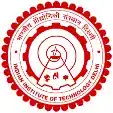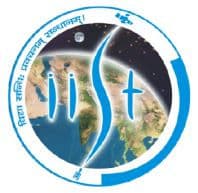Latest Applications Open 2024:
The official syllabus for the IIT JAM 2025 Biotechnology exam has been released by the exam authorities, and students can now download it in PDF format from the official website. IIT JAM is a prestigious examination organized by the Indian Institutes of Technology (IITs) and the Indian Institute of Science (IISc), with IIT Delhi overseeing the exam process for the 2025 session. This exam serves as a gateway for candidates seeking admission to various Master of Science and Technology programs.
Candidates preparing for the Biotechnology (BT) test can now access the detailed syllabus, which covers four key areas: Biology, Chemistry, Mathematics, and Physics. Understanding the syllabus is crucial for candidates to plan their preparation effectively. Additionally, IIT JAM aspirants can access syllabi for other test papers, which can be beneficial for those preparing for multiple subjects.
By referring to the official syllabus and aligning their preparation strategy accordingly, candidates can enhance their chances of success in the exam. The availability of detailed subject outlines ensures that candidates focus on the most relevant topics, making their study sessions more targeted and efficient. For more comprehensive preparation, downloading the official syllabus is highly recommended.
Click to Download the IIT JAM BT Syllabus PDF.
BIOLOGY (10+2+3 level)
Here’s a condensed version of the topics covered across various subjects in the IIT JAM Biotechnology syllabus:
- Cell Biology: Prokaryotic and eukaryotic cell structure, membrane function, organelles, protein trafficking, cell communication, extracellular matrix, apoptosis, mitosis, meiosis, and cell cycle control.
- Biochemistry: Biological macromolecules, enzyme mechanisms, enzyme kinetics, bioenergetics, metabolism (glycolysis, TCA cycle, oxidative phosphorylation, photosynthesis, nitrogen fixation, urea cycle), and metabolic regulation.
- Genetics: Mendelian laws, inheritance patterns, human disorders, pedigree analysis, chromosomal inheritance, genetic recombination, gene mapping, and plant breeding.
- Molecular Biology: DNA as genetic material, DNA replication, repair, recombination, transcription, RNA processing, translation, gene regulation (operons in bacteria, differential expression in eukaryotes).
- Evolution: Natural selection, population genetics, Hardy-Weinberg equilibrium, speciation, phylogenetic classification, origin of life, and multicellularity.
- Microbiology: Viruses, bacteria, fungi, protozoa, microbial isolation, cultivation, structure, pathogenesis, microbial metabolism, fermentation, and genetics.
- Plant Biology: Tissues, growth, morphogenesis, vascular transport, nutrition, development, flowering plants, hormones, photobiology, stress responses.
- Animal Biology: Systems (digestive, circulatory, respiratory, excretory, nervous, reproductive, endocrine), immunology basics, animal development (fertilization, embryogenesis, differentiation).
- Ecology: Climate patterns, biomes, species distribution, population dynamics, community interactions, ecosystems, and ecological remediation.
- Biotechnology: Plant tissue culture, animal cloning, recombinant DNA technology applications in medicine, agriculture, and forensic science.
Methods in Biology:
In the study of biology for the IIT JAM Biotechnology exam, several critical methodologies are explored across different disciplines:
Cell Biology Techniques: Students will learn fundamental techniques such as light microscopy and electron microscopy, which are essential for visualizing cellular structures at different resolutions. Additionally, techniques like immunocytochemistry for staining proteins with antibodies and the use of the GFP (Green Fluorescent Protein) reporter for gene expression visualization are covered extensively.
Biochemical Techniques: The syllabus includes essential biochemical methods like UV spectrophotometry, which measures biomolecule absorbance for quantification purposes, and biomolecular chromatography for separating biomolecules based on their properties. Cell fractionation through centrifugation, electrophoresis for biomolecule separation, and Western blotting for protein detection and analysis are also detailed.
Molecular Biology Techniques: Students are introduced to advanced molecular biology techniques including DNA cloning using plasmid vectors and restriction enzymes for genetic manipulation. Polymerase Chain Reaction (PCR) is taught for amplifying specific DNA sequences, while expression of cloned eukaryotic genes in bacterial hosts allows for protein production. Hybridization techniques enable the identification of specific nucleic acid sequences, and DNA sequencing methods are covered to determine nucleotide order in DNA molecules.
CHEMISTRY (10+2+3 level)
Chemistry forms a critical component of the IIT JAM Biotechnology syllabus, encompassing a range of foundational topics essential for understanding molecular interactions, chemical properties, and analytical techniques:
Structure and Properties of Atoms: Bohr’s theory of atomic structure and periodicity in properties across the periodic table are studied to understand the organization and behaviour of atoms.
Bonding in Molecules: Chemical bonding principles, including complex formation and the physical and chemical bases of molecular interactions, are explored to comprehend how atoms interact to form molecules.
Chemical Kinetics, Thermodynamics, and Equilibrium: Key concepts such as chemical equilibrium, the first and second laws of thermodynamics, and chemical kinetics focusing on zero and first-order reactions are covered to analyze the rates and energetics of chemical reactions.
Physical and Chemical Properties of Compounds: Detailed examination of chemical catalysis, acid-base concepts, pH, buffer systems, conjugative effects, resonance, inductive effects, electromeric effects, photochemistry, and electrochemistry provides insights into the diverse properties and behaviours of chemical compounds.
Chemistry of Organic Compounds: Comprehensive coverage of hydrocarbons, alkyl halides, alcohols, aldehydes, ketones, carboxylic acids, amines and their derivatives, aromatic hydrocarbons, halides, nitro and amino compounds, phenols, diazonium salts, carboxylic and sulfonic acids, soaps, detergents, and stereochemistry of carbon compounds elucidates the structures and reactivities of organic molecules.
Instrumental Techniques – Spectroscopy: Fundamentals of molecular spectroscopy, encompassing emission and absorption techniques, UV-Vis, IR, and 1-D proton NMR spectroscopy, alongside basics of mass spectrometry and calorimetry, as well as foundational concepts of crystallography, are taught to enable precise analysis and characterization of chemical compounds.
MATHEMATICS (10+2 level)
The 10+2 mathematics syllabus for IIT JAM Biotechnology covers a comprehensive range of topics essential for advanced mathematical understanding. It begins with fundamental algebraic concepts such as sets, relations, functions, and mathematical induction.
Students then progress through logarithms, complex numbers, and various types of equations including linear, quadratic, sequences, and series. Geometry topics include trigonometry, Cartesian coordinates, straight lines, three-dimensional geometry, and vectors.
Matrix algebra and Boolean algebra are introduced, alongside calculus topics like limits, continuity, differentiation, and integration, including methods like integration by parts. This breadth of content equips students with the mathematical tools necessary for analytical thinking and problem-solving in biotechnological contexts.
Statistics: Measures of Dispersion, Mean Deviation for Grouped and Ungrouped Data, Variance and Standard Deviation, Analysis of Frequency Distribution
Probability: Random Experiments, Events, Axiomatic Approach to Probability, Conditional Probability and its Properties, Multiplication Theorem on Probability, Independent Events, Bayes’ Theorem, Random Variables and its Probability Distributions, Bernoulli Trials and Binomial Distributions
PHYSICS (10+2 level)
At the 10+2 level for IIT JAM Biotechnology, the physics syllabus covers a comprehensive range of topics essential for understanding fundamental principles and applications in the field:
Students start with Units and Measurements, learning about different systems of units and the measurement of physical quantities. Motion in one and two dimensions follows, where laws of motion and concepts like work, kinetic energy, and conservation of energy are explored in depth. The study then progresses to the System of Particles and Rotational Motion, encompassing the mechanical properties of solids and fluids.
Thermal properties of matter and the Laws of Thermodynamics are examined next, followed by the Kinetic Theory of Gases. The syllabus then shifts to Electricity and Magnetism, covering electric charge and field, electric potential and capacitance, current, resistance, and simple circuits. Moving charges in magnetic fields, magnetism, and electromagnetic induction are also discussed.
Electromagnetic Waves and Alternating Currents are studied, followed by Optics. This includes geometrical optics covering reflection and refraction by spherical mirrors and lenses, total internal reflection, and optical instruments. Wave optics covers interference, diffraction, polarization, and Young’s experiment.
The dual nature of radiation and matter is explored, leading into the realms of Atoms, Nuclei, and Nuclear Physics. The syllabus concludes with semiconductor materials, devices, and simple circuits, preparing students with a foundational understanding of physics relevant to biotechnological applications.
IIT JAM Biotechnology Syllabus 2025 FAQs
What are the core subjects covered in the IIT JAM Biotechnology syllabus?
The core subjects include Biology, Chemistry, Mathematics, Physics, Cell Biology, Molecular Biology, Genetics, Microbiology, Biochemistry, and Biotechnology.
Is knowledge of Mathematics essential for IIT JAM Biotechnology?
Yes, Mathematics is crucial. The syllabus covers topics like Sets, Relations, Functions, Calculus, Statistics, and Probability, which are fundamental for understanding biotechnological applications.
What are some key topics in Biology that I should focus on?
Important topics include Cell Biology (cell structure, organelles, cell cycle), Genetics (Mendelian genetics, DNA replication, transcription, translation), and Microbiology (microbial structure, metabolism, genetics).
Are there specific sections of Chemistry I should prioritize?
Yes, focus on Organic Chemistry (hydrocarbons, biomolecules), Biochemistry (enzymes, metabolism), and Physical Chemistry (thermodynamics, chemical equilibrium) as they relate closely to biotechnological processes.
How should I prepare for the Physics section of IIT JAM Biotechnology?
Concentrate on Mechanics, Thermodynamics, Electricity and Magnetism, Optics, and Modern Physics. Understanding concepts like kinetic theory, electric circuits, optics principles, and atomic structure is essential.
Is the syllabus theoretical or does it include practical applications?
The syllabus includes both theoretical concepts and practical applications relevant to biotechnological research and development, ensuring a comprehensive understanding.
What is the significance of topics like Biotechnology and Bioinformatics in the syllabus?
Biotechnology covers techniques like DNA cloning, recombinant DNA technology, and applications in medicine and agriculture. Bioinformatics involves computational methods for analyzing biological data.
How can I best prepare for the Mathematics section if it’s not my strong suit?
Start with basic concepts and gradually move to advanced topics. Practice solving problems regularly and use study materials and mock tests to strengthen your understanding.
Are there any specific study resources recommended for IIT JAM Biotechnology preparation?
Use textbooks recommended by IIT JAM authorities, online lectures, study guides, and previous years’ question papers. Mock tests and practice exercises will also help in familiarizing yourself with the exam format.
What should be my strategy for revision closer to the exam date?
Focus on revising key concepts, formulas, and problem-solving techniques. Allocate time for each subject based on your strengths and weaknesses. Take mock tests to assess your preparation level and identify areas needing improvement.
If you have any other queries regarding IIT JAM Biotechnology Syllabus 2025, you can ask us by commenting below.

As a dedicated Biology Science graduate, I’m passionate about sharing the latest updates in national and state entrance exams through my blog. I aim to keep aspiring students informed about exam trends, important dates, and changes in syllabi. With a keen interest in education, I strive to offer valuable insights for students navigating the competitive landscape of entrance examinations and admission tests. Stay updated with me.


